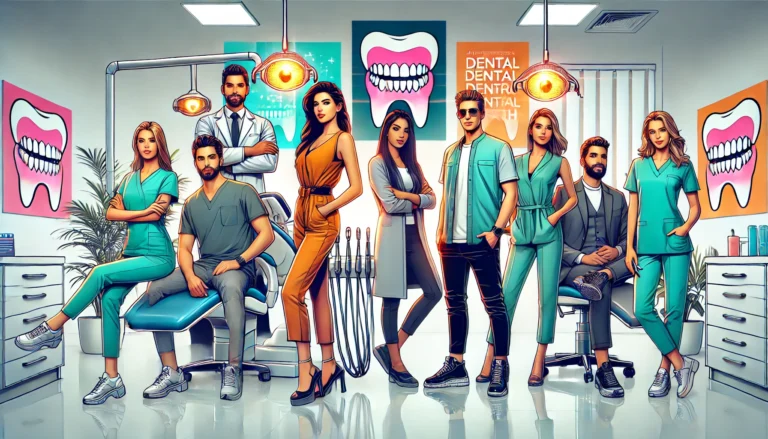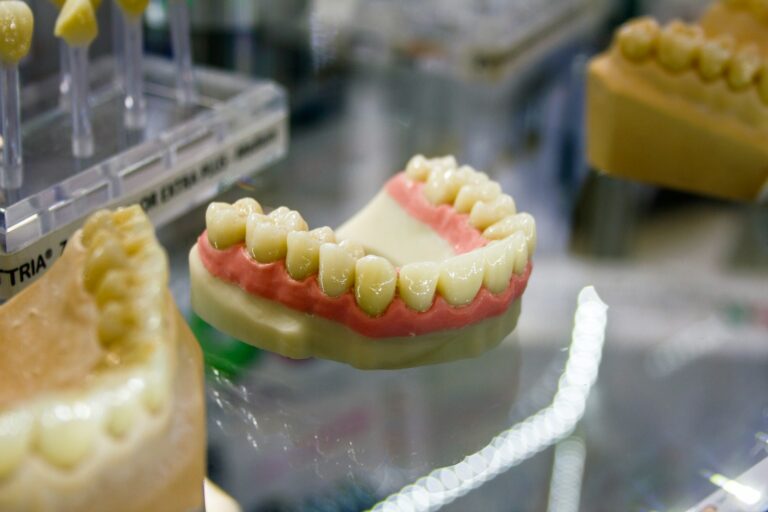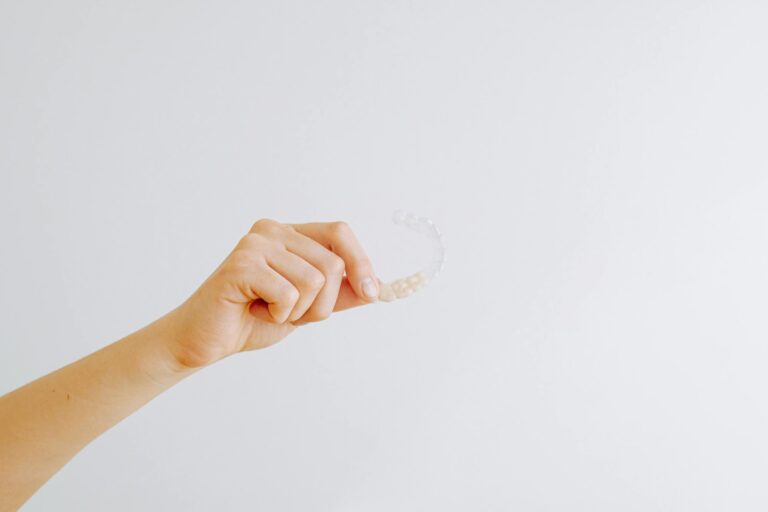
Dental crowns serve as a prevalent solution for restoring damaged teeth, yet many individuals may not fully grasp their purpose or the various types available.
This guide will explore what dental crowns are and why they may be essential for maintaining oral health. It will discuss their potential lifespan, the factors that can influence how long they last, and practical tips on caring for your dental crown. Furthermore, it will address when one should consider a replacement and the costs of dental crowns associated with it.
Whether you are contemplating getting a dental crown or you already have one, this information aims to assist you in keeping your smile healthy and bright.
What is a Dental Crown?

A dental crown is a custom-made cap that is placed over a damaged tooth, serving both functional and aesthetic purposes that are essential for improving oral health.
Crowns can effectively restore the shape, size, strength, and appearance of teeth that have become worn down, fractured, or severely decayed. This process helps ensure that the teeth last longer and maintain proper alignment within the mouth.
There are various types of crowns available, made from different materials such as porcelain, metal, and resin, allowing for tailored solutions that cater to individual dental needs and preferences.
Why Do You Need a Dental Crown?
Dental crowns hold an important place in modern dentistry, serving to restore teeth that have been damaged by decay, trauma, or following root canal treatments. They are designed to protect the structural integrity of the tooth while also aiding in maintaining proper alignment and function of the bite.
Furthermore, crowns are crucial for enhancing the aesthetic appearance of teeth, which can greatly boost a patient’s confidence and contribute positively to their overall oral hygiene.
What Are the Different Types of Dental Crowns?
There are several types of dental crowns available, including porcelain, metal, resin, and temporary options, each tailored to meet specific dental needs and patient preferences.
Porcelain crowns are well-regarded for their natural appearance, making them a popular choice for front teeth, where aesthetics are particularly important for an individual’s smile.
On the other hand, metal crowns, typically made from durable alloys such as gold or silver, are ideal for molars and front teeth that experience significant chewing pressure due to their exceptional strength.
For those looking for a more budget-friendly option, resin crowns offer a cost-effective solution; however, it is important to note that they may not last as long as porcelain or metal crowns.
Meanwhile, temporary crowns serve an essential purpose by protecting a tooth while a more permanent crown is being created. This allows patients to maintain both functionality and aesthetics during the treatment process.
Each type of crown has its unique role, addressing various dental concerns and accommodating individual requirements.
How Long Do Dental Crowns Last?
The lifespan of dental crowns can vary significantly depending on various factors, such as the type of crown, oral hygiene practices, and individual habits.
Generally, crowns that are well-maintained can last anywhere from 5 to 15 years, or even longer with appropriate care.
It is important to schedule regular dental appointments and maintain good oral hygiene to extend the lifespan of dental crowns and support overall oral health.
What Can Affect the Lifespan of a Dental Crown?

There are several factors that can greatly influence the lifespan of a dental crown. These include oral hygiene habits, diet, teeth grinding, and any trauma or injury to the tooth.
For instance, maintaining poor oral hygiene can result in decay at the edges of the crown. Similarly, a diet high in sugar or consisting of hard foods can raise the risk of damage to the crown. Moreover, conditions such as bruxism can place excessive stress on crowns, potentially leading to their premature failure.
1. Oral Hygiene Habits
Maintaining excellent oral hygiene is essential for the longevity of dental crowns. Proper brushing and flossing play a significant role in preventing plaque build-up and decay around the edges of the crown. Additionally, regular dental visits and professional cleanings are vital for ensuring that both the crown and surrounding teeth remain healthy.
- To effectively clean the surfaces of the crown without causing damage, it is advisable to use a soft-bristled toothbrush.
- Positioning the brush at an angle towards the gum line helps eliminate bacteria and debris while being gentle enough to avoid harming the crown material.
Incorporating daily flossing into your routine, particularly with a floss threader or orthodontic floss, can help reach the tight spaces around the crown. Scheduling routine dental check-ups allows for early detection of any potential issues, ensuring that both the crown and natural teeth are well-maintained, ultimately extending their lifespan.
2. Diet and Nutrition
A balanced diet that includes tooth-friendly foods can greatly influence the health and longevity of dental crowns. Foods rich in calcium, vitamins, and minerals are essential for maintaining strong teeth and gums, while it’s wise to avoid sugary and sticky snacks to prevent decay around the crown.
Incorporating items such as leafy greens, dairy products, nuts, and crunchy fruits can further enhance oral hygiene.
- Leafy greens are packed with vitamins and assist in cleansing the mouth.
- Dairy provides calcium and phosphorus, both critical for strengthening enamel.
- Nuts offer healthy fats and proteins that support gum health.
- The fibrous texture of crunchy fruits like apples and pears helps in naturally brushing the teeth.
Additionally, staying hydrated by drinking plenty of water is important as it helps wash away food particles and neutralises acids in the mouth, offering extra protection for dental restorations.
Taking a mindful approach to nutrition not only promotes overall well-being but also plays a vital role in safeguarding your dental investments.
3. Teeth Grinding and Clenching
Teeth grinding, or bruxism, can significantly compromise the longevity of dental crowns due to the excessive force that may result in cracks or fractures. Individuals who grind their teeth, particularly during sleep, should seriously consider using a night guard to protect both their crowns and natural teeth from potential damage.
These protective devices are vital as they help distribute the pressure generated during grinding, which can greatly reduce wear and tear on dental restorations. Without such protective measures in place, individuals may face challenges beyond just damage to their crowns; they might also experience increased dental sensitivity, jaw pain, and even the risk of tooth loss over time.
It is important for those suffering from bruxism to engage in a conversation with their dental professionals regarding customised solutions. This ensures that they receive adequate protection for their teeth and crowns while also supporting their overall oral health.
4. Trauma or Injury
Trauma or injury to a tooth can have a significant impact on the durability of a dental crown, potentially resulting in cracks or even dislodgement. It is crucial to implement protective measures during physical activities to minimise the risk of dental injuries.
In many instances, the forces involved in sports or other high-impact activities can compromise not only the crown itself but also the surrounding tooth structures. Athletes, particularly those participating in contact sports, should seriously consider wearing custom-fitted mouthguards to provide cushioning for their teeth against potential impacts.
Being mindful of proper techniques and maintaining good posture during play can substantially reduce the likelihood of accidents. Additionally, regular dental check-ups can be advantageous in identifying any existing weaknesses or issues with crowns, allowing for timely interventions that help ensure the long-term protection and health of the dental crown.
How Can You Prolong the Lifespan of Your Dental Crown?

Extending the lifespan of your dental crown requires a thoughtful approach that combines excellent oral hygiene, mindful dietary choices, protective measures, and regular visits to the dentist.
By adhering to a consistent care routine and being mindful of habits that could potentially compromise the crown, you can help ensure that it remains both functional and visually appealing for many years to come.
1. Practice Good Oral Hygiene
Practising good oral hygiene is essential for maintaining your dental crown. This involves regular brushing and flossing to keep the surrounding teeth and gums healthy, which helps prevent plaque build-up and reduces the risk of decay at the margins of the crown.
Plus brushing twice a day with fluoride toothpaste, it is important to use a soft-bristled toothbrush. This choice helps avoid damaging the crown or the surrounding enamel. Daily flossing is equally crucial, as it removes food particles and plaque from between the teeth and below the gum line, areas a toothbrush might not effectively reach.
Regular dental check-ups also play a vital role in monitoring the health of dental crowns. These visits allow for timely interventions should any issues arise. Overall, these practices not only contribute to the longevity of the crown but also enhance the well-being of your smile.
2. Avoid Hard and Sticky Foods
To protect a dental crown, it is important to avoid hard and sticky foods that may exert excessive pressure or cause damage. Items such as hard sweets, ice, and sticky confections can lead to cracks or dislodgement of the crown.
Additionally, chewy foods like toffee and chewing gum can create complications by placing undue strain on the restoration. It is advisable to limit or eliminate crunchy snacks such as popcorn and certain nuts, as these may chip or break the crown.
Furthermore, acidic foods like citrus fruits and fizzy drinks can weaken the surrounding structures, potentially leading to issues over time. Prioritising soft, low-acid foods can help maintain the integrity of dental crowns.
By making thoughtful dietary choices, individuals can significantly enhance the protection of their crowns, ensuring that these dental investments remain intact for years to come.
3. Wear a Night Guard
Wearing a night guard can be an effective way to protect your dental crown from the adverse effects of teeth grinding and bruxism during sleep. This straightforward protective measure absorbs the force exerted on the teeth, helping to prevent damage to both crowns and natural teeth.
Plus safeguarding against wear and tear, using a night guard can enhance overall oral health by reducing the risk of jaw pain and headaches often associated with bruxism. By acting as a cushion between the upper and lower teeth, it lessens the strain on the jaw muscles and alleviates pressure, promoting a more restful night’s sleep.
This dental appliance can significantly extend the life of dental crowns by preventing chips and fractures, making it an essential part of comprehensive dental care. A night guard not only protects existing dental work but also plays a vital role in preventive measures against more extensive dental issues in the future.
4. Seek Treatment for Teeth Grinding and Clenching
If you are experiencing teeth grinding or clenching, it is important to seek treatment to protect your dental crown and maintain your overall dental health. A professional dental evaluation can offer solutions to alleviate the pressure on your teeth, which may include stress management techniques and the use of dental appliances.
Neglecting the signs of bruxism can lead to significant damage over time, such as worn-down crowns, fractured teeth, and chronic jaw pain. Dental professionals can recommend various treatment options, including custom night guards specifically designed to cushion your teeth and prevent grinding during sleep.
They may also suggest therapeutic approaches, such as behavioural therapy, to address the underlying causes of the condition.
Regular check-ups are essential to ensure that any potential issues are identified early, which helps preserve the integrity of existing dental work and enhances overall oral health. It is especially important for individuals with existing crowns to prioritise this care, as their protective measures may be compromised by grinding habits.
5. Protect Your Teeth During Physical Activities
Protecting your teeth during physical activities is crucial to prevent trauma that could impact your dental crown. Wearing a sports mouthguard can significantly lower the risk of injury to both your teeth and crowns, especially during contact sports.
This protective device serves as a cushion, absorbing impact and helping to prevent fractures, dislocations, and even concussions. When selecting an appropriate mouthguard, it is important to consider factors such as comfort and fit to ensure that you wear it consistently during training and matches.
Custom-fitted mouthguards provide superior protection, as they mould precisely to your dental structure, offering the best defence against potential injuries. Evaluating the intensity of the sport being played can help guide your choice of material, ranging from simple boil-and-bite options to professionally made models.
Prioritising dental protection is not only a wise decision for athletes but also a crucial step in maintaining overall oral health.
When Should You Replace Your Dental Crown?
Replacing a dental crown becomes necessary when there are signs of damage, decay, or discomfort. Common indicators that a crown may need to be replaced include:
- Visible cracks
- Changes in its position
- Pain around the crowned tooth
A dental evaluation can provide valuable insights and help determine the best course of action to restore your oral health.
How Much Does a Dental Crown Replacement Cost?

The cost of replacing a dental crown can vary significantly based on several factors, such as the type of crown, the materials used, and the location of the dental practice. Generally, patients can expect to pay between £800 and £3,000 for a replacement, depending on these variables and the applicability of insurance coverage.
Geographical differences play a considerable role in pricing; for instance, urban areas often have higher costs due to the elevated cost of living and increased demand for dental services. Additionally, the expertise and reputation of the dental practitioner can influence the price, as more experienced professionals may command higher fees for their quality work.
When evaluating treatment options, it is important for patients to consider the longevity of different crown materials, as this can impact long-term costs. Typically, insurance plans cover a portion of crown replacement, but understanding the specifics of one’s coverage—such as deductibles and co-payments—is essential for effectively managing out-of-pocket expenses.
Frequently Asked Questions
What is the best way on caring for your dental crown?
The best way to care for your crown is to keep it clean and to avoid damaging it. Brush your teeth and gums gently twice a day, and try to avoid sticky or hard foods that can cause damage to your crown.
How often should I see my dentist for maintenance of my crown?
It is recommended to see your dentist at least every six months for regular check-ups and cleanings. During these visits, your dentist can check on the health of your crown and make any necessary adjustments or repairs.
Can a crown be whitened like natural teeth?
No, crowns cannot be whitened like natural teeth. If you are concerned about the color of your crown, talk to your dentist about options for replacing it with a lighter shade.
How long can a crown last with proper care?
Crowns can last for many years with proper care. The average lifespan of a crown is 10-15 years, but with good oral hygiene and regular dental check-ups, they can last even longer.
What should I do if my crown feels loose or falls out?
If your crown feels loose or falls out, contact your dentist immediately. Do not try to fix it yourself, as it could lead to further damage or discomfort. Your dentist will be able to assess the situation and determine the best course of action.
Can I floss around a crown?
Yes, you can floss around a crown. It is important to continue flossing to remove plaque and food particles from between your teeth and under the crown. However, be sure to floss gently to avoid damaging the crown or dislodging it.






